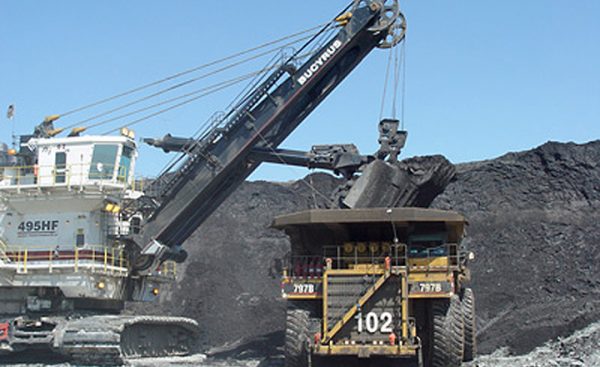The revival of Hwange Colliery Company Limited (HCCL), Zimbabwe’s largest coal
producer, seems to be taking longer than anticipated.
The company, which has recorded annual losses in the past few years, has seen successive boards
coming up with revival strategies, but not even one has been successful.
After being frustrated by the slow pace of revival, and fears that the company was heading for
liquidation, government recently placed HCCL under reconstruction — a situation which has brought
more confusion to the once thriving firm.
Andrew Lawson, Hwange’s former scheme of arrangement chairperson, risks facing civil and criminal
liability after he opposed government’s unilateral decision to place the coal miner under judicial
management without proper consultation.
Lawson recently came out guns blazing, vowing to protect creditors’ interests through an opposition of
government’s application to put the struggling miner under administration.
However, Hwange’s appointed judicial managers Bekithemba Moyo, Mutsa Remba and Munashe
Shava shot back and said Lawson has no capacity to take any action as the reconstruction order has
overtaken the scheme.
“Lawson presided as chairman of scheme meetings held on April 26, 2017, and his role was
discharged upon presentation of his report to the High Court on May 3, 2017 and registration of the
scheme in terms of Section 192 (3) of the Companies Act thereafter,” the trio said.
“He has no capacity to take any further action thereafter and all he now seeks to do is unlawful.
Confirmation of the Reconstruction Order is a statutory process and in terms of the act Lawson sought
to oppose this in a separate capacity, which in any event has nothing to do with his obsolete role as
scheme chairperson.”
Government through a statutory instrument placed Hwange under administration in October in an
effort to revive the struggling coal mine — it has since approached the High Court seeking to confirm
the reconstruction order of the company.
Lawson said he is opposing the reconstruction as he was not consulted on the decision and he will
hold a meeting with creditors to determine a way forward.
He has in the past worked tirelessly to revive the coal miner, including ensuring the miner has been
paying monthly instalments to creditors since December 2017.
Lawson vowed the scheme will continue until $70 million arrears are paid in full. The miner owes
various creditors $352 million.
A weak management system coupled with alleged incompetence, sabotage and abuse of company
funds have seen Hwange defaulting on the scheme of arrangement, plunging into $7,6 million fresh
arrears.
The whole arrears sparked government, which owns 42 percent of the entity, to place the struggling
miner under reconstruction — a decision which irked board members, workers and other shareholders
who were not consulted.
This was through a statutory instrument which states that in terms of the Reconstruction of State
Indebted and Insolvent Entities Act, the responsible minister — Ziyambi Ziyambi has powers to issue
a reconstruction order if it appears to him that by reason of fraud or mismanagement, a State-indebted
company is unlikely to be able to make any repayment of a credit made to it from public funds.
The whole confusion comes as British businessman Nicholas van Hoogstraten, who holds a 31
percent shareholding at Hwange, also said he is going to challenge the reconstruction of the company.
Workers have said they will also go to the courts seeking an order that places the company under
judicial management instead of reconstruction.
Lawson said the High Court order of sanctioning a scheme of arrangement between the company and
its creditors is in full force.
“On the strength of the original court order sanctioning the scheme and in order to protect creditors’
interests, and in my capacity as the trustee of the scheme, I have filed an opposition to the Minister’s
application,” Lawson said.
“While the legal process in connection with the reconstruction is ongoing, I shall soon convene a
creditors meeting to map the way forward in the mutual interests of both the company and creditors.”
Hwange has since been suspended from trading on the Zimbabwe Stock Exchange (ZSE) and the
Johannesburg Stock Exchange (JSE).
Hwange has largely been operating in the red. The company’s 2018 half-year financials reflect a net
loss of $23 million.
Hwange has been a clear example of how parastatals that are riddled with mismanagement,
corruption and political interference, contributing little revenue for the country but debts to an already
ailing economy.
Van Hoogstraten confirmed the corruption, saying as a shareholder of the company, he was never
consulted about the reconstruction of the company, or many other developments that took place.
“They (government) are trying to cover recent corruption that has been going on there and you can
never imagine the kind of corruption that was going on there.
“…I cannot quantify the corruption because some of it was being done through tenders of service.
“We reported about externalisation of about $10 million of forex monthly by a Chinese company that
was supposedly in a joint venture with Hwange for more than three years now but the Reserve Bank
of Zimbabwe has since not done anything about it.”
Van Hoogstraten said he had put in place both short and mid-term measures to protect his interests,
saying that he is litigating against the reconstruction of Hwange.
The coal miner’s woes keep on pilling up as the appointed lead administrator Moyo, who took over
operations said he is yet to sign a contract.
He told Parliament that he was acting on the verbal agreement he has with Mines minister Winston
Chitando and the gazette instruction.
source: DailyNews Live





